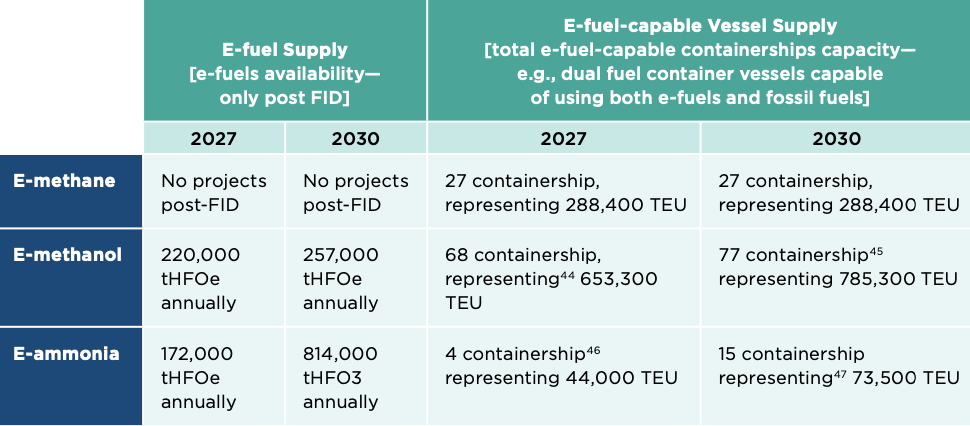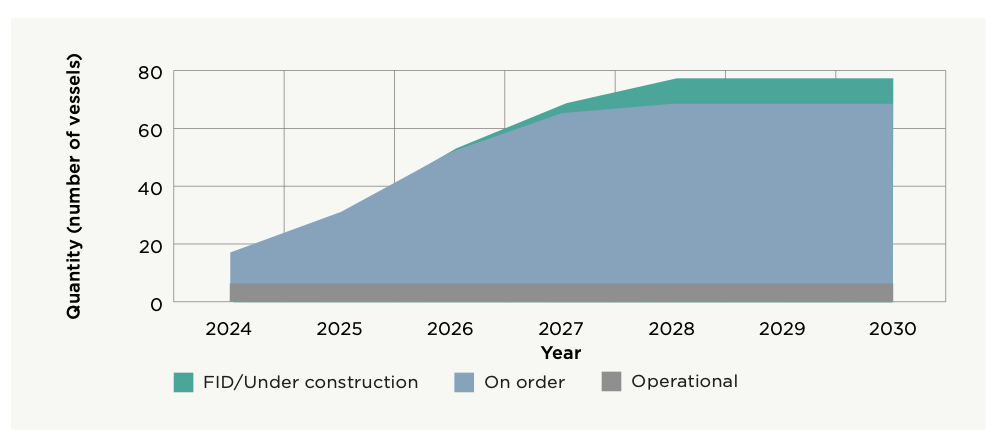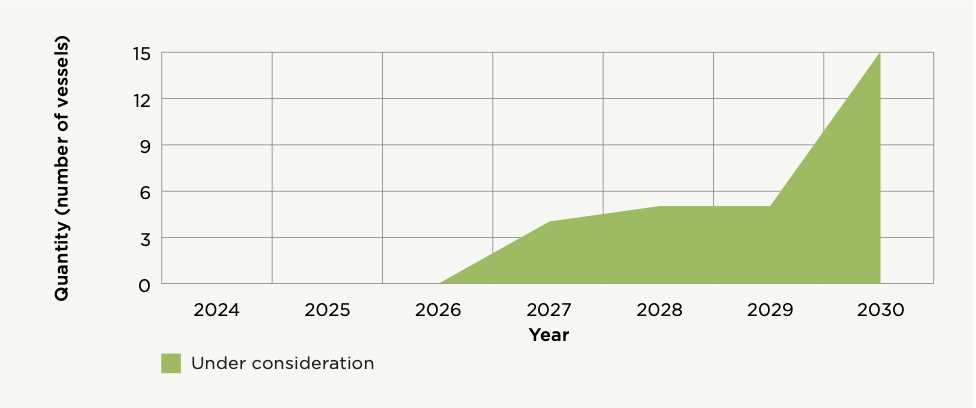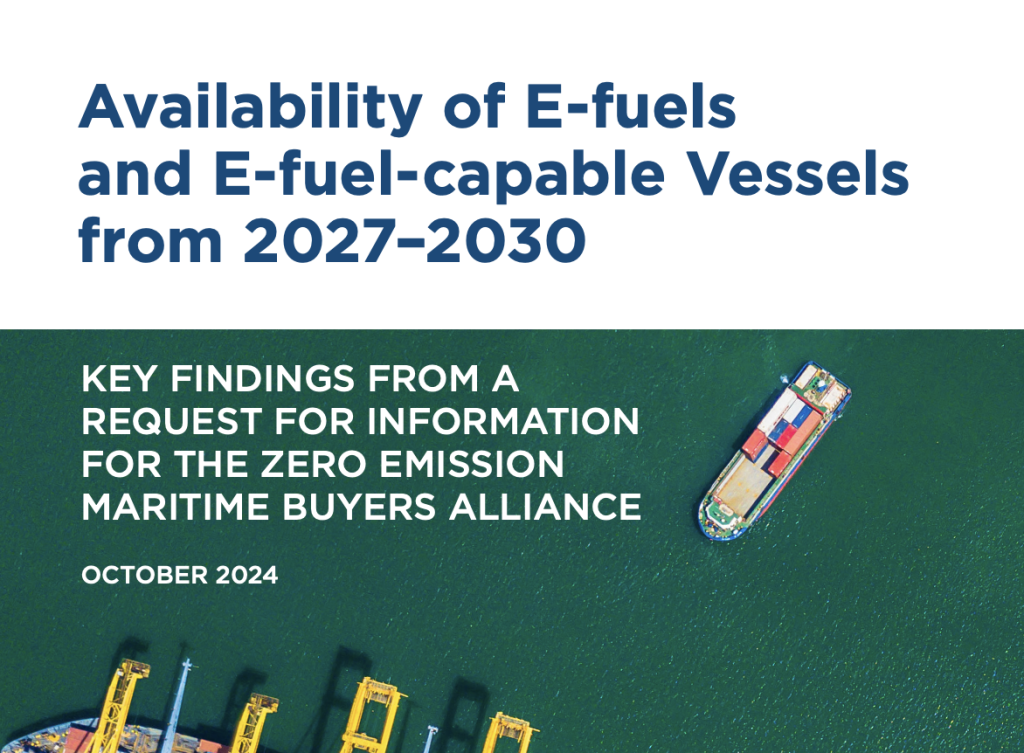The maritime industry is actively shifting toward sustainability, with ZEMBA (Zero Emission Maritime Buyers Alliance) at the forefront of these changes. The organization aims to drive the deployment of zero-emission (ZE) maritime solutions and establish economies of scale. One of the most promising ZE fuels is e-methanol, which shows significant potential to become a mainstream fuel in the industry.
The maritime sector, responsible for approximately 2-3 percent of global greenhouse gas (GHG) emissions, faces increasing pressure to reduce its carbon footprint. E-fuels, defined as fuels derived from hydrogen through electrolysis and powered by renewable energy sources, offer a scalable path toward zero emissions. E-methanol is particularly compelling because it uses carbon from biogenic or waste streams, and its infrastructure is more adaptable compared to other e-fuels such as e-ammonia and e-methane.
Projections and Growth in E-Methanol Adoption
According to ZEMBA’s recent Request for Information (RFI) in collaboration with Lloyd’s Register Maritime Decarbonization Hub, e-methanol is anticipated to be a dominant fuel choice by 2027, with a capacity of approximately 220,000 tonnes of heavy fuel oil equivalent (tHFOe) annually for maritime use. By 2030, this figure is expected to rise to 257,000 tHFOe, underscoring e-methanol’s rapid adoption potential. Importantly, fuel providers identified maritime as their top market, with 78 percent of planned e-fuel production volumes directed toward it.

e-methanol and e-ammonia in 2027 and 2030. (Source: Availability of E-fuels and E-fuel-capable Vessels from 2027–2030. Key findings from a request for information for the Zero Emission Maritime Buyers Alliance)
Fleet Adoption of E-Methanol and Other ZE Fuels
The survey results show that the number of e-fuel-capable vessels is on an upward trajectory. By 2027, the containership segment alone is projected to have 68 e-methanol-capable vessels, equating to 653,300 twenty-foot equivalent units (TEU) in cargo capacity. By 2030, this figure is expected to grow to 77 vessels with a total capacity of 785,300 TEU. This trend indicates a strong alignment between e-methanol production and vessel adoption, positioning it as the leading ZE fuel in the short term. Comparatively, only 27 e-methane-capable vessels and 4 e-ammonia-capable vessels are expected by 2027, reflecting e-methanol’s superior readiness and infrastructure compatibility.

Addressing Supply Chain and Financing Challenges
Although the RFI findings show optimistic projections, challenges remain. A significant number of e-fuel projects are pre-Final Investment Decision (FID), indicating a need for further financing and infrastructure development to achieve full-scale commercial deployment. Only 15 percent of surveyed e-fuel projects are currently post-FID, which may limit near-term fuel availability. Nonetheless, ZEMBA’s strategic tenders and collective procurement processes aim to catalyze investment, mitigating this bottleneck and encouraging ZE service uptake by shipping companies.

the RFI by year. Quantities indicate the number of vessels; the colors show the current state of readiness. (Source: Availability of E-fuels and E-fuel-capable Vessels from 2027–2030. Key findings from a request for information for the Zero Emission Maritime Buyers Alliance)
The Path Forward: ZEMBA’s Vision for Zero Emission Shipping
ZEMBA’s innovative approach—leveraging collective demand from climate-focused cargo owners—is setting a new benchmark for maritime decarbonization. By 2027, ZEMBA plans to launch an e-fuel-focused tender with an emphasis on e-methanol. This endeavor could be a decisive step in mainstreaming ZE fuels, enabling the maritime sector to meet International Maritime Organization (IMO) targets and ultimately contribute to global GHG reduction goals.

